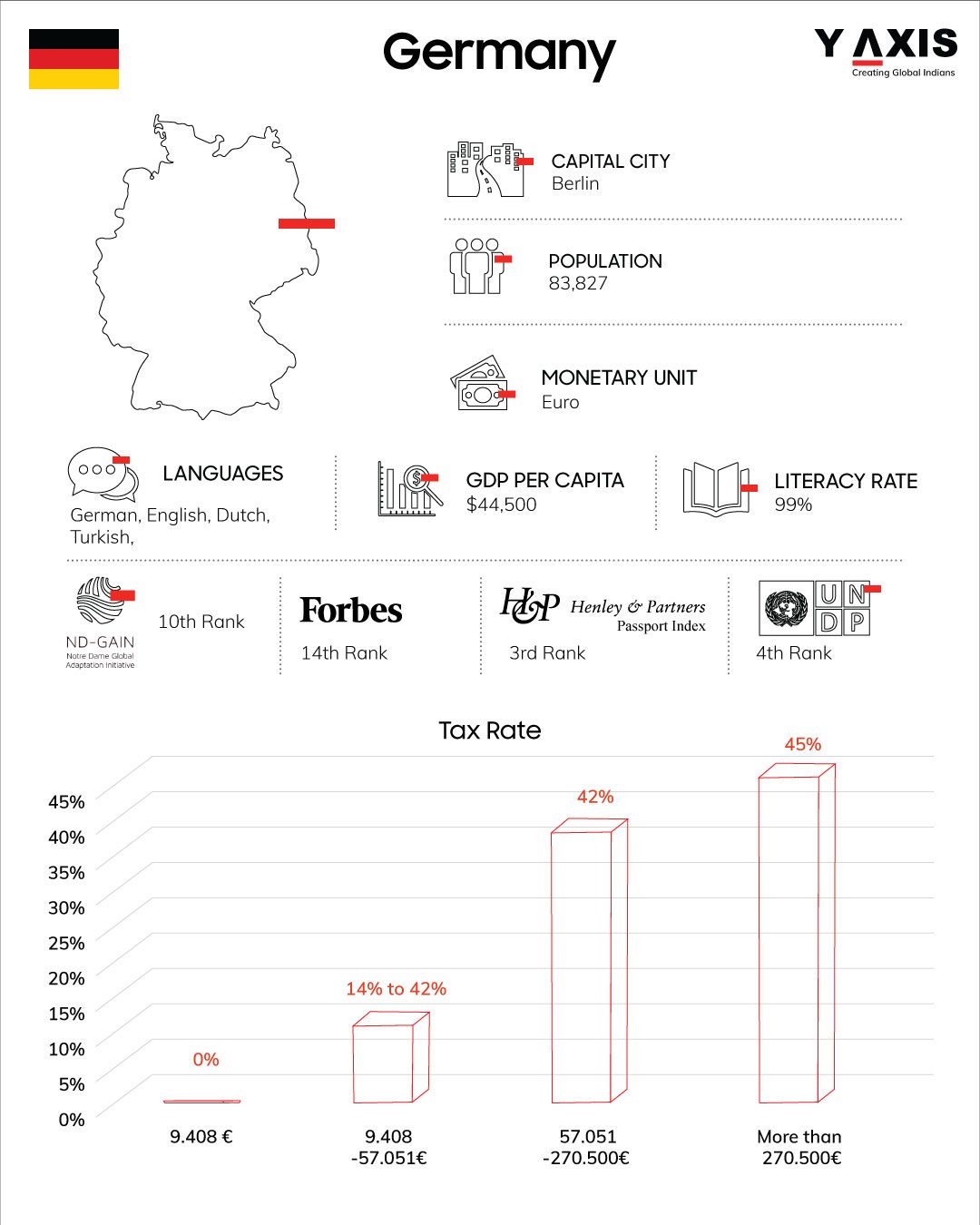
Germany, Europe’s largest economy, is also the world’s fourth-largest economy. It is home to a highly innovative automotive industry and headquarters to 29 of the Fortune 500 companies. The Federal Republic of Germany is also the third-largest exporter of goods globally.
This European country is renowned for offering free education at most of its educational institutions and also for its universal health care system. Due to these factors, it is one of the most desired destinations for foreign workers.
Migrating to Germany
Because of its aging population and shortages of skilled workers, the country wholeheartedly welcomes immigrants. It also offers options for them to become the country’s permanent residents (PRs).
You can apply for a PR if you have resided in Germany for more than five years. Individuals living in the country to work or study on a legal residence permit can apply for PR.
Students who have graduated from German universities can apply for PR if they have stayed in Germany for two years – in which they should have had a residence permit for working in the country.
Citizens of countries belonging to the European Union (EU) become eligible for Germany PRs. If you are a holder of an EU Blue Card, you can apply for German PR after working in the county for a period ranging from 21 to 33 months.
Self-employed individuals with residence permits can apply for PRs after staying in Germany for more than three years. It is, however, mandatory that they must be able to support themselves financially. Highly skilled workers earning a minimum annual income are granted PR soon.
Advantages of having a German PR visa
Those who have permanent resident permits are eligible to apply for any type of employment in Germany, even if it may not be relevant to their educational qualifications. If you are in Germany on a jobseeker visa or a normal visa, you will not be allowed to apply or take up a job unrelated to your profession.
Germany allows its PR visa holders to float their businesses or start-ups. In fact, the country’s government provides many incentives to encourage start-ups.
Holders of PR visas are eligible for social benefits like healthcare, childcare, and welfare benefits, which would help them if they lose their jobs or are sacked.
PR visa holders are entitled to pursue studies in the course of their choice in universities of Germany, for which they are eligible for scholarships or financial assistance if they require it.
PR visa holders can travel unrestrictedly to any of the EU countries without visas to visit or work in any country belonging to the EU.
Those who hold PR visas can easily access bank loans if they want to buy homes in Germany.
*Check your eligibility for Germany through Y-Axis Skilled Immigration Points Calculator
Work opportunities in Germany
Since Germany is facing a shortage of skilled workers owing to an aging population, studies predict that the number of people in the working-age population (aged 20-64) will tumble to 3.9 million by 2030. By 2060, the number of working-age Germans will fall to 10.2 million.
To address this problem, the government of Germany has been attracting immigrants who possess professional qualifications to work in the country and to train refugees to hone their skills.
Out of the total official list of 801 occupations, there are labor shortages in 352 of them. The sectors that face skill shortages are healthcare and science, technology, engineering, and mathematics (STEM). There is also a scarcity of skilled workers having vocational qualifications. Other occupations also face a scarcity of skilled workers are medical services, supply and waste management, plumbers, pipefitters, electricians, toolmakers, welders, healthcare, and elderly care professionals.
Conclusion
As per the European Centre for the Development of Vocational Training (CEDEFOP) report, Germany alone will have around 20 million job vacancies from 2021 to 2030. There will be a lot of demand for nurses and caregivers in the healthcare sector due to the rise of the country’s aging population. By 2050, Germany is predicted to have the highest number of job vacancies among all European countries at 7 million.
During the decade up to 2030, Germany will see a proliferation of job opportunities in hospitality, transport, and energy supply services, among others. The most in-demand jobs will be associate professionals in the legal & social sectors and customer clerks.
If you are looking to migrate to Germany, reach out to Y-Axis, the World’s No. 1 Overseas Consultant.
If you found this story appealing, you can refer to



Migrate to Germany-Largest economy in Europe with opportunities
Posted on April 23, 2022